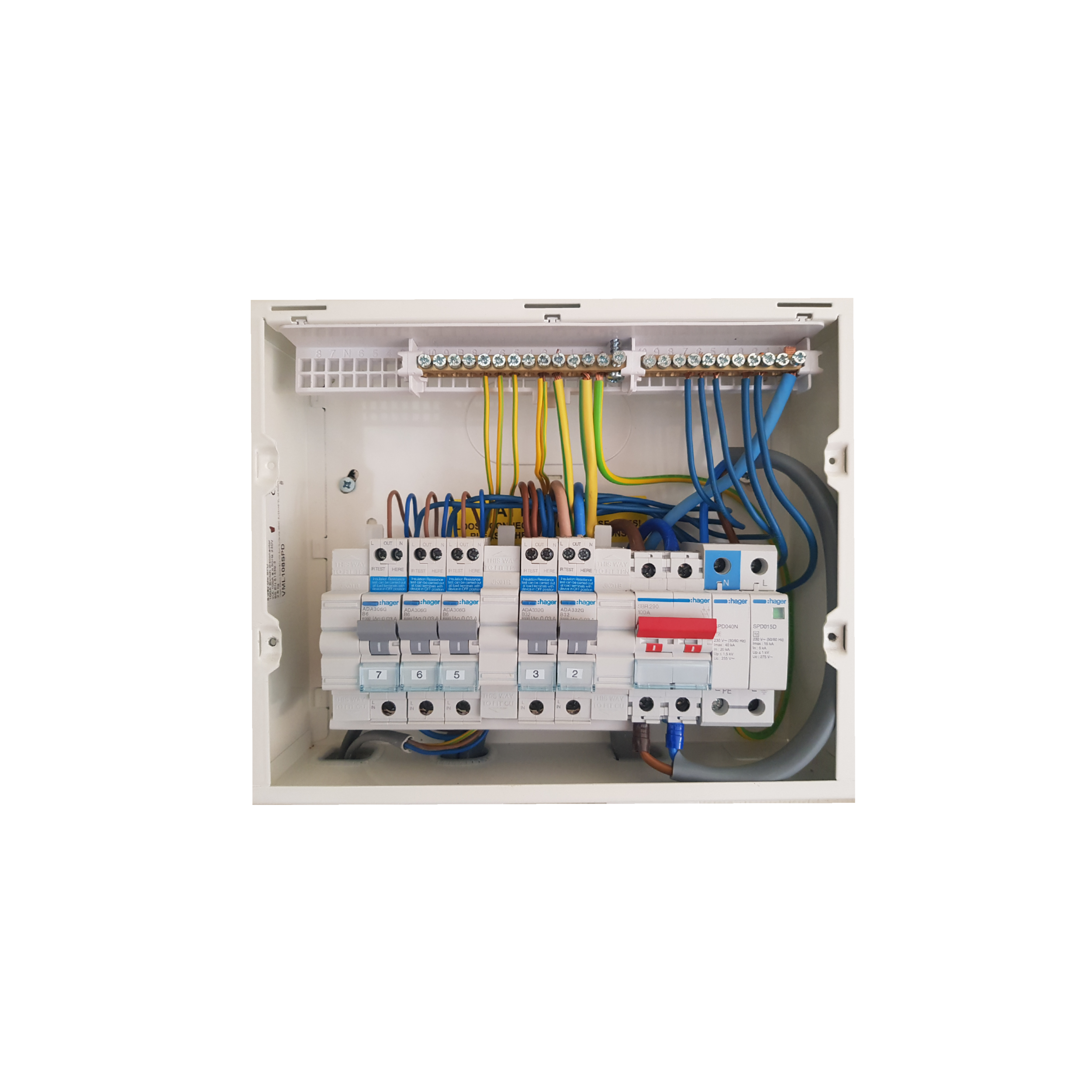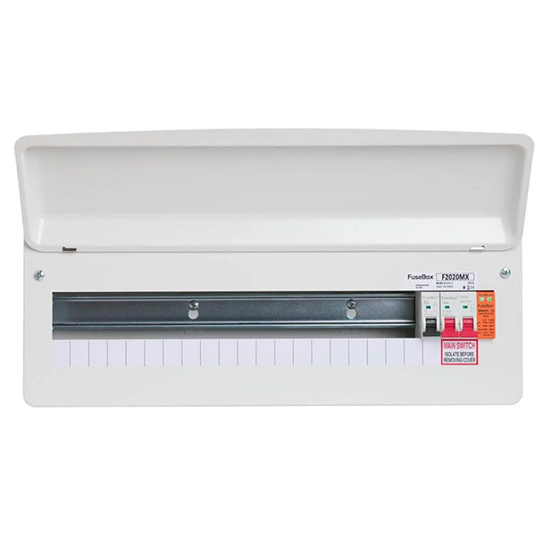The Relevance of Setting Up Reliable RCBO CONSUMER UNITS in Your Property
Wiki Article
The Function of Customer Systems in Reliable Energy Administration Systems
Customer units are important to effective power administration systems, serving as the primary distribution points for electric power within structures. The advent of smart technologies has actually further enhanced their functionality, allowing for real-time data monitoring and nuanced power usage evaluation.Comprehending Consumer Systems

Understanding the role of consumer devices begins with identifying their important function in guarding electric systems. By separating mistakes within particular circuits, consumer systems avoid prevalent interruptions and possible fire risks. This isolation is achieved with making use of circuit breakers that journey or fuses that strike when a fault is detected, thus removing the electric circulation to the influenced circuit.
Moreover, consumer systems facilitate the organized distribution of power, boosting the efficiency of power usage. They permit for the methodical administration of electric tons, which can be particularly essential in commercial and commercial settings where need can vary significantly. Correctly maintained customer systems add to the durability of electric systems and help in lessening downtime triggered by electrical failings, ultimately supporting the smooth procedure of energy-dependent centers.
Smart Technologies Combination

A key benefit of smart customer units is their capacity to leverage advanced formulas and device understanding for anticipating analytics. This permits preemptive modifications based upon usage patterns, weather report, and other variables, significantly increasing general performance. Clever consumer systems promote need reaction programs, where energy usage can be dynamically readjusted throughout peak periods to support the grid and minimize prices.
The integration of sustainable power sources, such as solar and wind, is likewise structured via smart consumer devices. By intelligently managing the intermittency of these resources, these devices guarantee a trusted and well balanced power supply. Additionally, smart consumer units enhance individual interaction by giving in-depth insights and remote abilities with mobile applications, promoting a much more positive technique to power conservation and sustainability.
Surveillance Energy Usage
Structure on the capabilities of clever innovations integration, checking energy consumption becomes a crucial focus within power monitoring systems. Reliable monitoring acts as the foundation for identifying energy inadequacies and executing corrective procedures. By leveraging innovative metering facilities (AMI), real-time information on energy usage can be collected at granular levels, providing valuable understandings right into usage patterns and peak need periods. This data-centric strategy enables both customers and energy managers to make informed decisions focused on decreasing waste and improving total efficiency.Smart meters and Net of Points (IoT) devices play an essential role in this monitoring process. These tools can track power usage in real-time, transmitting data to central systems for analysis.
The combination of these technologies not just equips customers with in-depth details regarding their power use however also sustains energy companies in managing load distribution a lot more properly. Inevitably, continuous and accurate monitoring is important for achieving energy performance, expense savings, and sustainability goals within power administration systems.
Optimizing Home Appliance Use

One efficient approach entails identifying height and off-peak hours to change energy-intensive activities, such as washing or dishwashing, to times when power demand is lower. This not just minimizes stress on the grid but likewise takes advantage of reduced power tolls. In addition, integrating artificial intelligence algorithms enables for anticipating maintenance, making certain appliances operate at optimum efficiency and lengthening their life-span.
Energy administration systems can additionally include user-specific choices and behaviors to customize home appliance usage timetables. Wise lights systems can adjust illumination based on tenancy and natural light schedule, while Cooling and heating systems can preserve convenience levels without extreme power usage.
Promoting Sustainability
Advertising sustainability within power management systems entails not just enhancing efficiency yet also cultivating environmentally liable practices. Customer devices are indispensable to this process, as they give real-time data and control mechanisms that make it possible for customers to keep track of and decrease their power consumption. By leveraging advanced technologies, customer devices can identify energy-saving chances and promote the assimilation of renewable resource sources like solar and wind power.One essential aspect of promoting sustainability is educating consumers on the advantages of responsible energy use. Via detailed insights offered by customer systems, users can make informed choices that decrease their carbon impact. For example, these units can advise ideal times for running high-energy home appliances based on grid need and eco-friendly power availability, therefore minimizing dependence on nonrenewable fuel sources.
Furthermore, customer devices support the fostering of clever grid modern technologies, which improve the overall effectiveness and reliability of power distribution. By enabling two-way communication in between consumers and utility providers, these systems can dynamically change to power demands, minimizing waste and promoting using lasting energy practices.
Final Thought
Consumer systems, as important elements of energy management systems, considerably improve electrical security and performance within buildings through circuit security and clever innovation assimilation. Additionally, the unification of sustainable power resources advertises sustainable techniques, contributing to decreased total energy usage and reduced carbon impacts.Developments in smart innovations have reinvented the capacities see of power monitoring systems, particularly through the combination of clever customer devices.Building on the capabilities of smart technologies integration, monitoring power usage becomes an important focus within energy administration systems.Reliable device usage optimization is an essential component of energy management systems, aiming to enhance efficiency and minimize unneeded energy intake.Customer units, as essential components of energy management systems, substantially improve electric safety and efficiency within structures through circuit security and wise technology assimilation. Additionally, the incorporation of sustainable energy resources advertises lasting methods, adding to reduced general energy intake and reduced carbon footprints.
Report this wiki page